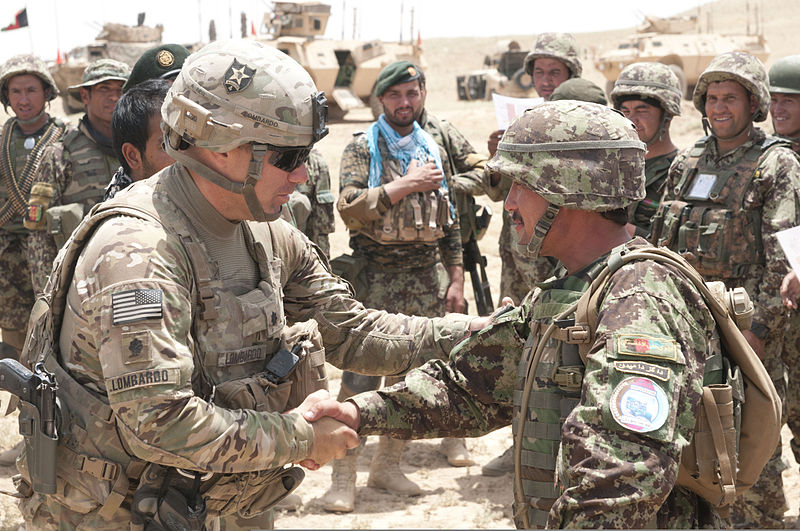Table of Contents
16 Common Military Terms Used in the English Language
All over the world, people use military terms without being aware of them, and the English language is not an exception. In fact, it’s full of phrases and idioms borrowed from the military and wars. Let’s see the top 15 military terms you use everyday.
No matter how phrases and words used by soldiers have slipped into the civilian everyday language, the fact is, we all use them every day. So, knowing at least the most common ones can help you become more aware of the origin terms of the English military terminology you use on a regular basis.
16 Common Military Terms We All Use without Knowing It
You’ll be surprised to find out how many military slang terms are used in everyday language.
Here are some of the most common ones:
1. Roger That
This is a pretty common phrase that means “yes.” According to the old phonetic alphabet of NATO, “Roger” was the pronunciation of the letter “r”, and radio operators would say it to confirm that a message was received.
Nowadays, instead of “Roger that,” they pronounce the letter “r” as “Romeo,” even though “Roger” is still used.
2. Blockbuster
The word that we use for a box-office hit used to have a totally different meaning. During the Second World War, the military used it when referring to a bomb that was powerful enough to destroy most of a city block.H3
3. Deadline
Today, we use the word “deadline” instead of “due date.” But, this word was used quite literally. If someone crossed the deadline that surrounded POW camps during the Civil War, they were instantly shot.H3
4. Fruit Salad
When it comes to military slang, “fruit salad” has nothing to do with neither fruit nor salad. It’s a term used for a display of ribbons and medals on a service member’s dress uniform. We bet the next time you order a fruit salad, you will think about the term’s unusual origin.H3
5. With Flying Colors
Now meaning to do something well, the idiom “with flying colors” indicated victory. In the past, when a naval ship had its flags or colors still flying when returning to its homeport after a battle, it meant that they won the battle.H3
6. Balls to the Walls
Today’s meaning of this phrase means going as fast as possible. However, it originates from military aviation.
The control levers of aircraft had balls on the end, so when their aircraft had to fly as fast as possible, they had to push the accelerator all the way out and put the lever balls against the firewall in the cockpit, hence the phrase “balls to the walls.”
7. Band-Aid
Today, Band-Aid means a piece of sticky tape with a gauze pad in the center that we use to cover small cuts or wounds on our bodies. It can also mean a temporary solution. But, this term used to mean “a medic” during the Vietnam War.H3
8. Loose Cannon
We say someone is a loose cannon if they are unpredictable or dangerously uncontrollable. In military terminology, however, this term dates back to the 17th century, when the primary offensive weapon of wooden warships was the cannon.
Cannons used to be mounted on rollers and secured with rope to avoid damage from their recoil when fired. If a cannon got free of its restraints, it was called a loose cannon that posed a danger while rolling on the deck.
9. Grunt Work
Today’s meaning of this common phrase is thankless and tedious work or a job that’s boring and repetitive, or one that lacks prestige and glamour. But, during the Vietnam War, “grunts” was a word used for American infantrymen.
There are different theories on the origin of this phase, the most popular being that the word “grunt” indicates the sound made by soldiers picking up weighty combat gear.
10. Cup of Joe
“Cup of Joe” is simply a cup of coffee. The story of how this phrase was invented is quite interesting.
Namely, when a man called Josephus Daniels became U.S. Navy’s secretary in 1913, alcohol was banned from military ships. Soon after, sailors started to call coffee, the strongest beverage available to them, a “cup of joe.”
11. Gone Elvis
We use this phrase when someone disappears or is out of our sight. But, according to the military terminology, “Gone Elvis” indicates that a service member is missing in action.H3
12. Bite the Bullet
This idiom means enduring discomfort or deciding to do something unpleasant or difficult without crying out. It is believed that during the American Civil War, fighters on both sides used it when a wounded soldier had to undergo painful surgery on the battlefield.
To make it easier for the wounded soldiers, they gave them something to bite on. Even though that may not have been a bullet itself but a musket ball or something similar, the term was still used.
13. Latrine Queen
Latrine Queen or the Queen of the Latrine describes an old lady who thinks she has the right to do and say everything. Its original meaning is a trainee in basic in the Air Force in charge of those responsible for cleaning bathrooms.H3
14. Got Your Six
If someone’s on your six, it means it’s right behind you, or they are watching your back. The military uses the hours of a clock to describe direction and position, so six o’clock refers to the rear position.
Military members use this term to tell each other that their rear is covered.
15. No Man’s Land
We use this idiom to refer to a topic that’s too dangerous to discuss because it may anger someone or dangerous ground. This term was used by the World War I soldiers when talking about an area between opposing armies in the trenches.
16. Over the Hill
“Over the hill” is a common idiom that describes a person that’s too old to do something. In military slang, it means a person who has gone missing from their post.



